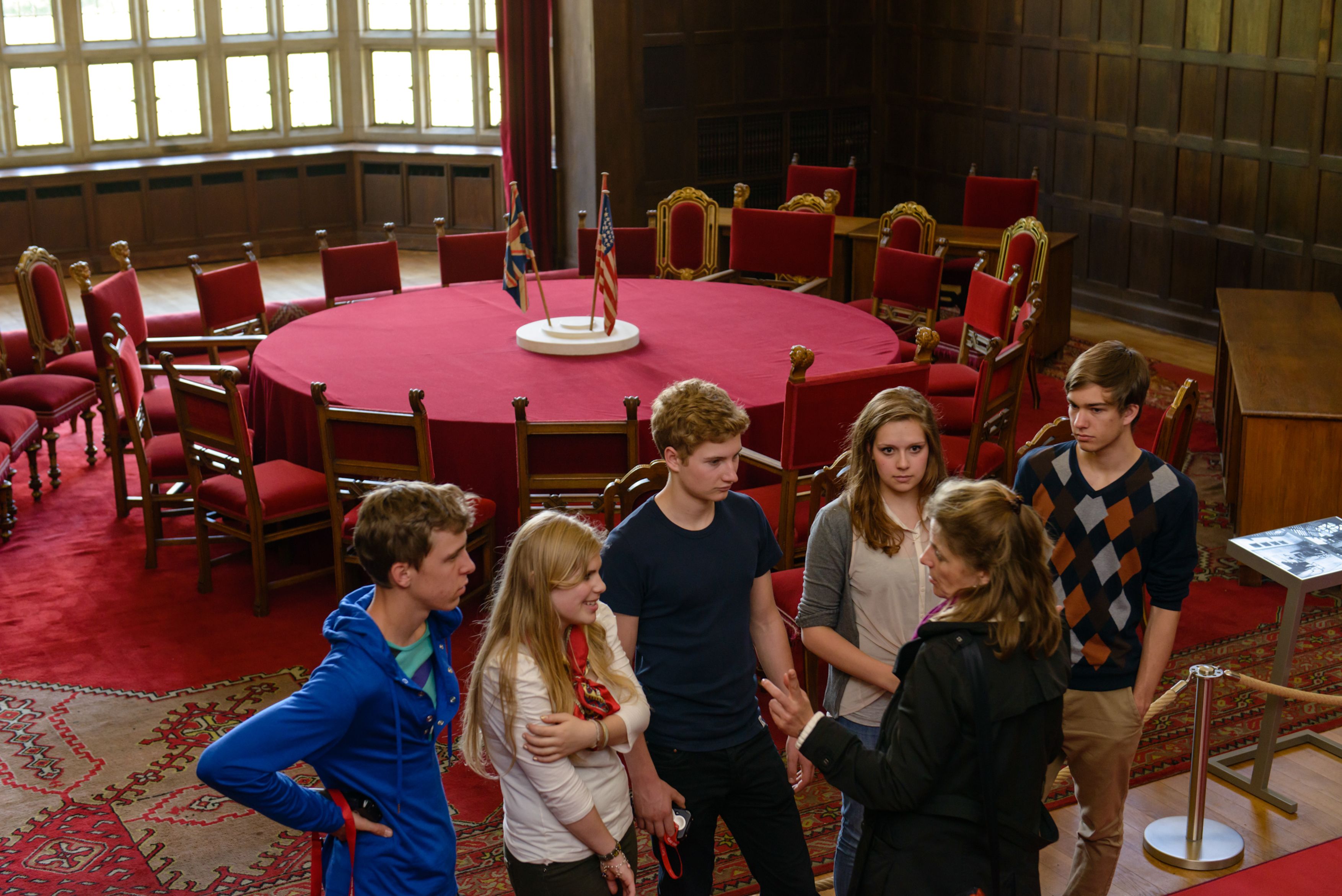

In addition to settling matters related to Germany and Poland, the Potsdam negotiators approved the formation of a Council of Foreign Ministers that would act on behalf of the United States, Great Britain, the Soviet Union, and China to draft peace treaties with Germany's former allies. The negotiators at Potsdam were well-aware of the situation, and even though the British and Americans feared that a mass exodus of Germans into the western occupation zones would destabilize them, they took no action other than to declare that "any transfers that take place should be effected in an orderly and humane manner" and to request that the Poles, Czechoslovaks and Hungarians temporarily suspend additional deportations. In exchange for the territory it lost to the Soviet Union following the readjustment of the Soviet-Polish border, Poland received a large swath of German territory and began to deport the German residents of the territories in question, as did other nations that were host to large German minority populations. One of the most controversial matters addressed at the Potsdam Conference dealt with the revision of the German-Soviet-Polish borders and the expulsion of several million Germans from the disputed territories. The reconstitution of a national German Government was, however, postponed indefinitely, and the Allied Control Commission (which was comprised of four occupying powers, the United States, Britain, France, and the Soviet Union) would run the country during the interregnum.
POTSDAM CONFERENCE TRIAL
Furthermore, Germany society was to be remade along democratic lines by repeal of all discriminatory laws from the Nazi era and by the arrest and trial of those Germans deemed to be "war criminals." The German educational and judicial systems were to be purged of any authoritarian influences, and democratic political parties would be encouraged to participate in the administration of Germany at the local and state level. According to the Protocol of the Conference, there was to be "a complete disarmament and demilitarization of Germany" all aspects of German industry that could be utilized for military purposes were to be dismantled all German military and paramilitary forces were to be eliminated and the production of all military hardware in Germany was forbidden. For example, the negotiators confirmed the status of a demilitarized and disarmed Germany under four zones of Allied occupation. Many experts agreed that the harsh reparations imposed by the Versailles Treaty had handicapped the German economy and fueled the rise of the Nazis.ĭespite numerous disagreements, the Allied leaders did manage to conclude some agreements at Potsdam. Truman and Byrnes encouraged this position because they wanted to avoid a repetition of the situation created by the the Treaty of Versailles, which had exacted high reparations payments from Germany following World War One. While Roosevelt had acceded to such demands, Truman and his Secretary of State, James Byrnes, were determined to mitigate the treatment of Germany by allowing the occupying nations to exact reparations only from their own zone of occupation. At Yalta, the Soviets had pressed for heavy postwar reparations from Germany, half of which would go to the Soviet Union.
POTSDAM CONFERENCE HOW TO
The major issue at Potsdam was the question of how to handle Germany.


Although the Allies remained committed to fighting a joint war in the Pacific, the lack of a common enemy in Europe led to difficulties reaching consensus concerning postwar reconstruction on the European continent. Germany surrendered on May 8, 1945, and the Allied leaders agreed to meet over the summer at Potsdam to continue the discussions that had begun at Yalta. Roosevelt had agreed to meet following the surrender of Germany to determine the postwar borders in Europe. President Harry Truman-met in Potsdam, Germany, from July 17 to August 2, 1945, to negotiate terms for the end of World War II.Īfter the Yalta Conference of February 1945, Stalin, Churchill, and U.S. The Big Three-Soviet leader Joseph Stalin, British Prime Minister Winston Churchill, and U.S.


 0 kommentar(er)
0 kommentar(er)
